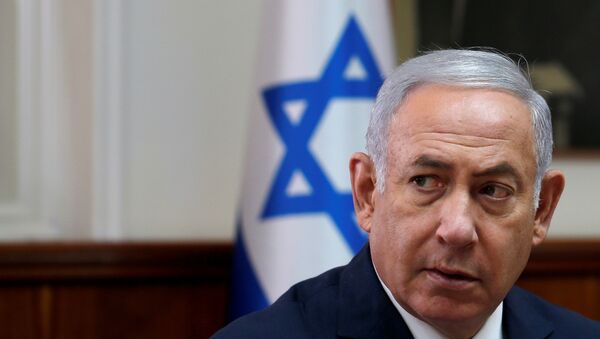Iranian Foreign Ministry spokesman Bahram Qassemi described Israeli Prime Minister Benjamin Netanyahu’s visit to Oman as an attempt to create rifts among Muslim states and “cover up its 70-year-long occupation of Palestine and the massacre of Palestinians.”
He warned Muslim countries not to allow Tel Aviv to create “further trouble for the region.”
“History and experience have proved that surrendering to the illegitimate demands of the US and the Israeli regime will further embolden them to exert pressure and advance their agenda in the region and to ignore the inalienable rights of the Palestinian nation,” Iran’s Press TV quoted Qassemi as saying.
Israeli Prime Minister Benjamin Netanyahu arrived in Oman on Thursday to discuss ways of achieving “peace and stability.”
Netanyahu arrived in Muscat on Thursday night at the head of a high-powered delegation that included among others Mossad director Yossi Cohen and National Security Adviser Meir Ben-Shabbat, and returned to Jerusalem later on Friday.
Mr. Netanyahu’s Office described the one-day visit as “a significant step in implementing the policy outlined by Prime Minister Netanyahu on deepening relations with the states of the region while leveraging Israel's advantages in security, technology and economic matters."
Benjamin Netanyahu and his wife were invited by the sultan to visit after lengthy consultations between the two countries.
Muscat and Tel Aviv have no diplomatic relations, and the last Israeli leader to visit Oman was then-prime minister Shimon Peres in 1996.
Earlier this week, Palestinian President Mahmoud Abbas also visited the Persian Gulf Arab state for three days.
READ MORE: Riyadh Visit Revealed Trump Fully Backing Israel, Sunni Arabs Against Iran
In August, Benjamin Netanyahu dropped a hint that Israel may join an anti-Iranian Arab coalition in the event Tehran blocks the Bab al-Mandab Strait, the southern entrance to the Red Sea.
The United States is reportedly looking to forge a security alliance with Arab nations to function as a so-called "Arab NATO" in a bid to counter Iran's growing clout in the Middle East.



